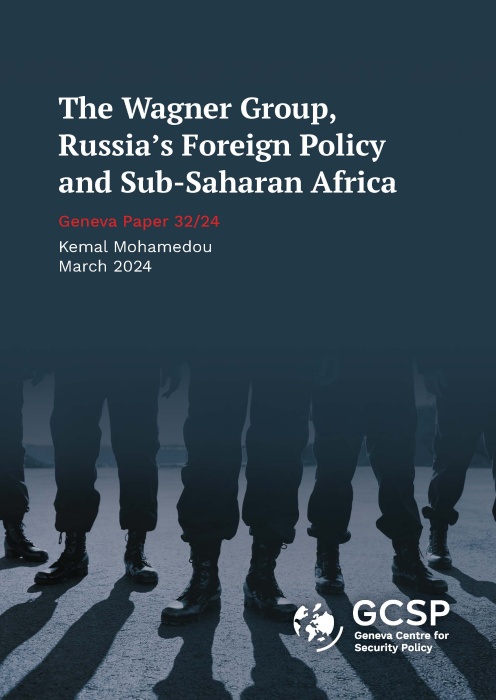The Wagner Group, Russia’s Foreign Policy and Sub-Saharan Africa
Executive summary
Set up in 2014 as a private organisation, the Wagner Group has conducted numerous military activities internationally that remain shrouded in mystery. Through documented investigations, it emerges that the group is less akin to a traditional private military contractor and more a tool in Russian president Vladimir Putin’s military arsenal. Through its deployment in the Central African Republic and Mali, the group has gained an important foothold in sub-Saharan Africa and has furthered Russian foreign policy aims in the region, enabling Moscow to advance three key aims: (1) achieving recognition for Russia as a great power through global geopolitical repositioning; (2) undermining Western interests by building a Russian sphere of influence; and (3) enhancing Russian soft power. The historical anti-imperial Soviet advances in the post-colonial era had facilitated present-day Russian endeavours in Africa, providing a narrative for the Russian state’s foreign policy goals. While the Wagner Group has employed various political strategies to exert soft-power influence, it has also resorted to a coercive approach to suppress anti-government and anti-Russian activity. Russian advisors have developed repressive tactics, instrumentalising local state institutions and national armed forces to threaten opponents. The Wagner Group’s activities in sub-Saharan Africa have demonstrated a concerted effort to enhance Russia’s influence in the region and secure the country’s strategic interests. While Russia is not the sole external actor in Africa, the current political orientation adopted by the Kremlin towards sub-Saharan Africa can ultimately be read as a move to fragment and unsettle Western presence across the continent. In this context, the merging of paramilitary and non-military actions in Africa is of particular relevance, allowing Russia to project power, exert influence and – crucially – unsettle local state-building projects.
Disclaimer: The views, information and opinions expressed in this publication are the author’s own and do not necessarily reflect those of the GCSP or the members of its Foundation Council. The GCSP is not responsible for the accuracy of the information.


